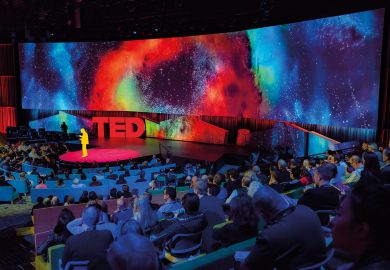Tertiary education only marginally increases people’s trust in science, a global study has found. And political orientation has minimal impact on confidence in science in Australasia, unlike most of North America and western Europe.
The survey of almost 72,000 respondents across 68 countries, conducted by an international team of 241 researchers, has confirmed that most people in most nations trust science and think it should be harnessed to shape government policy. But tertiary education has less influence than religion in boosting confidence in the scientific method.
Co-author Mathew Marques, a senior lecturer in social psychology at La Trobe University, said higher education was associated positively with trust in science in Australasia and across the world. But the effect was “kind of borderline”.
Marques said previous research had cast doubt on the “public deficit model” that “the more we teach people about science, the more positive they will be about science”. For people with “particular ideological worldviews”, further education simply made some better at “forming arguments” or finding evidence that supported their beliefs.
The new study looked at perceptions of science in general, rather than specific fields like medical or environmental science. Marques said tertiary education’s relatively small influence was a “positive sign” because it meant scientists should be able to communicate their research effectively, irrespective of whether people had degrees.
The minimal association between political orientation and trust in science Down Under was also good news, he said. The study found that right-wing leanings correlated with a marginal increase in confidence in scientists in Australia and New Zealand, although the effect was small.
In most western European and North American countries, right-wing orientation was associated with significantly lower trust in scientists – particularly in Austria, Canada, Norway, the Netherlands and Germany, along with Brazil, Israel and China.
Marques said research into views about science in the US and Europe had uncovered polarisation along political lines. “There seems to be no such association within Australia. That would mean that the ability of scientists to speak and engage with the public shouldn’t be hampered by political ideology.”
In parts of Africa, Latin America, eastern Europe and Asia, right-wing orientation was strongly associated with high trust in science. Overall, Egyptians professed the greatest confidence in scientists, followed by Indians, Nigerians and Kenyans.
Australia ranked fifth and New Zealand ninth, ahead of the US and UK at 12th and 15th respectively. Ethiopia, Russia, Bolivia, Kazakhstan and Albania proved least trusting, although respondents from every country averaged above three in a five-level “trust index”.
The survey, published in the journal Nature Human Behaviour, was conducted between November 2022 and August 2023 by the Trust in Science and Science-Related Populism (Tisp) consortium, which claims the world’s largest post-Covid dataset on public confidence in science.
Overall, scientists were deemed intelligent by 84 per cent of respondents, qualified by 78 per cent and expert by 72 per cent. But just 57 per cent considered them honest and 54 per cent ethical, while slightly less than half judged them receptive to feedback or transparency.
Marques said the apparent lack of confidence in scientists’ honesty was “a striking finding”, with 31 per cent of respondents deeming them neither honest nor dishonest. “Almost a third of the sample seems to be somewhat unsure,” he said.
Register to continue
Why register?
- Registration is free and only takes a moment
- Once registered, you can read 3 articles a month
- Sign up for our newsletter
Subscribe
Or subscribe for unlimited access to:
- Unlimited access to news, views, insights & reviews
- Digital editions
- Digital access to THE’s university and college rankings analysis
Already registered or a current subscriber?









